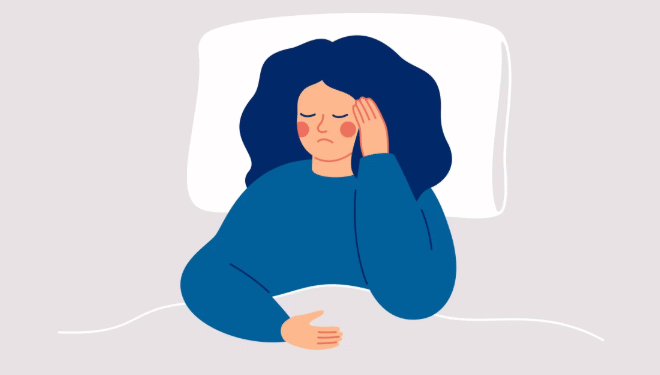Sleep disorders often go unnoticed, yet they reflect more than just poor rest. These conditions can indicate deeper problems affecting the body’s systems. Understanding how sleep relates to other health concerns is part of managing long-term wellness. Many people experiencing irregular sleep patterns also face challenges with blood pressure, metabolism, or immune function. By addressing the connection between sleep and health, individuals can work toward better overall outcomes.
Heart Health and Sleep Disorders
One of the most studied connections involves sleep and cardiovascular health. People with conditions like sleep apnea may stop breathing multiple times throughout the night, putting strain on the heart and vessels.
Interrupted sleep impacts oxygen flow and triggers stress responses. Over time, this can raise blood pressure and increase the risk of heart problems. Without treatment, sleep disorders may worsen existing cardiovascular concerns and complicate management.
Mood and Sleep
Emotional health plays a major role in sleep quality. Anxiety, depression, and mood swings can disrupt normal sleep cycles, making rest feel out of reach. At the same time, not sleeping well may worsen emotional symptoms, creating a cycle that is hard to break. Treatment often includes behavioral support, lifestyle changes, or therapy. Once sleep improves, people often experience fewer mood disruptions and feel more in control of their thoughts and energy.
Immune System Effects
Rest helps the body reset and recover. When sleep disorders disrupt this process, the immune system may become less efficient. Frequent illness, slower recovery, or inflammation can follow ongoing sleep loss. Research has shown that people with sleep problems may not respond as well to vaccines or resist infections as effectively. Improving sleep habits and addressing the root cause of a disorder helps protect long-term immune strength.
Blood Sugar and Fatigue
Sleep disorders may also influence metabolism and blood sugar control. Short or disrupted sleep can interfere with the way the body uses insulin. This may lead to higher blood sugar levels and increase the risk of developing diabetes. People already managing diabetes may find their numbers harder to control if their sleep remains poor. Sleep and glucose regulation are closely tied, so addressing one often improves the other.
Chronic pain and fatigue are common among people with untreated sleep disorders. Whether the pain causes broken rest or stems from lack of sleep, the two issues often appear together. Muscle recovery, joint stability, and daily movement depend on adequate rest. Without it, inflammation and discomfort can increase. A care plan that includes sleep assessment often helps reduce pain and improve energy levels throughout the day.
Cognitive Function
Sleep supports memory, focus, and decision-making. Over time, disorders that interrupt sleep can affect how the brain processes information and manages daily tasks. People with ongoing sleep concerns may notice forgetfulness, slower reaction times, or difficulty concentrating. These changes can interfere with work, relationships, and overall safety. Addressing sleep disorders can lead to clearer thinking and improved productivity.
Finding the right solution begins with understanding what type of sleep disorder is present. Some involve trouble falling asleep, while others center around staying asleep or breathing issues during rest. A healthcare provider may recommend a sleep study, physical evaluation, or lifestyle assessment to guide treatment. Support can involve setting sleep routines, making environment changes, or managing other health issues that affect sleep. Over time, even small improvements may lead to better outcomes across multiple areas of health.
Support Long-Term Health
Treating sleep disorders has wide-reaching effects on the body. From heart health to emotional well-being, sleep connects to nearly every system. Understanding this link makes it easier to identify health patterns and take proactive steps.
For those living with persistent sleep problems, working with a care provider can reveal both the source and the solution. A structured approach to treatment supports both rest and overall well-being for the future.










